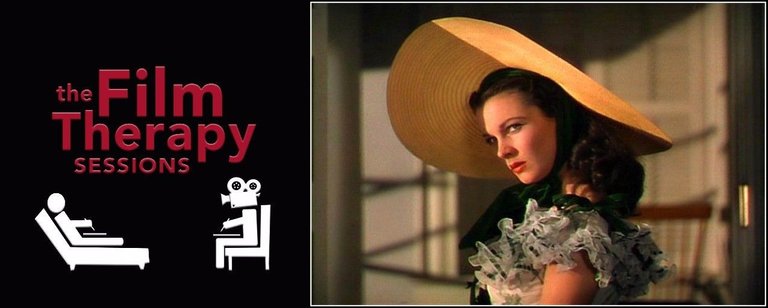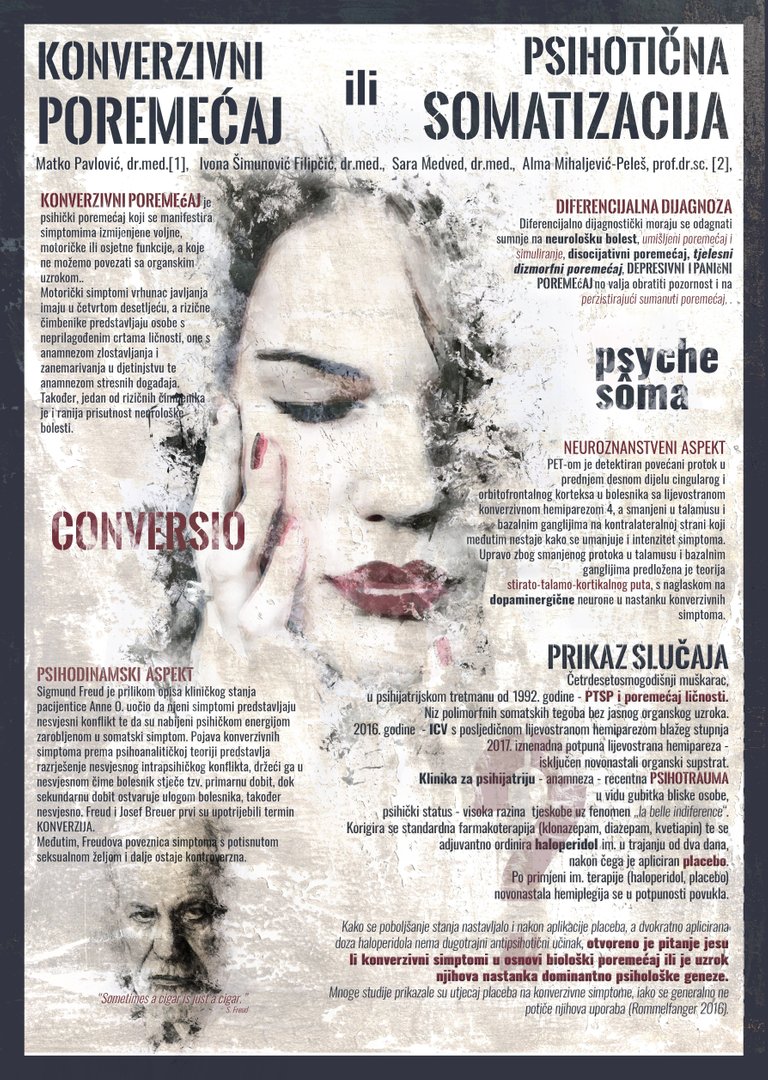
Do you know what's the origin of the term HYSTERIA? Well, If you didn't go to medical school or you've never attended any lessons of (ancient) Greek or Latin, I guess you wouldn't have a clue.
Term: hyster -
Origin: Latin - hystericus -"of the womb," Ancient Greek - υστέρα/hystera -womb, uterus
Scarlett O'Hara

Gone with the wind, an epic melodrama filmed in 1939, beautify depicts an evolution of ficklish young lady to a mature, independent women. Scarlett O'Hara is highly intelligent, yet insecure, vain, self-centered and spoiled by her wealthy parents. Acts empty-headed and naive in front of men. Rash and impulsive in her actions, craving for the only guy she couldn't have. You really couldn't find a better personification of „hysteria“ in vast history of cinema.
Now what is hysteria really?
„Wandering womb?“
History of philosophy and medicine has offered us all sorts of annotations related to anxious states that we know today as well differentiated psychological phenomena, mainly classified in DSM-V under anxiety disorders, dissociative disorders, mood disorders, sexual disorders and somatoform disorders. According to the ancient writings of Hippocrates, all kinds of somatic presentations (of psychogenic symptoms) are caused by a „wandering womb“. Yes, a womb. A womb that apparently freely loiters and roams inside a women's abdomen. Plato agreed, but slightly revised the theory. He said that a womb is a little animal inside women's body that can cause some serious problems like fainting, seizures, headaches or even loss of speech and body paralysis. Hysteria was treated with aromatic salts, hypnosis, ice cold water and finally with dildos. The theory about the wandering womb kinda persisted until the late 19. century when Freud took the theory to another level, calling it „wandering subconsciousness“, or „mind within a mind.“ and approached to the syndrome with the controversial „talk therapy“.

Hysteria today
Demographic picture of mental disorders has radically changed over the last century. We can say that clinical representations of neurotic disorders, historically known under the term Hysteria, are more less decayed and won't be to often in day to day clinical practice. Psychopathology in general has much evolved by the time of Freud and Jung. If we say that 20th century has been „hysterical“, as neuroses has marked the psychiatry that era, than we can say that 21th century is highly „narcissistic“. How did that happen? Well, as the society evolved over the century, much has changed in the way we approach to ourselves and to others. Parents were more rigid, repressive and sometimes even brutal toward their children. Sex was a taboo these days, especially for women who had to nurture the image of a pure caretaker, a domestic being devoid of any sexual desire (unless it is directed towards their husbands). In as atmosphere like that, you can only breathe GUILT, the main emotion underlying neurotic disorders. In today's society sex isn't a taboo anymore. It's a weapon and a tool. If you don't have it, you need to get it. And if you don't get it, well... SHAME on you. Shame, also known as an „narcissistic affect“ is the main emotion underlying majority of personality disorders, with high narcissistic traits. These I encounter in my clinical practice much more often that „true“ neurosis.

DIFFERENTIAL DIAGNOSIS
"Hysterical features" usually occur in a conversive disorder or histrionic personality disorder. Let's distinguish these two.
Conversion disorder (F44)
Conversion disorder is a mental disorder manifested by certain neurological symptoms. According to psychoanalytic theory, the symptoms represent the resolution of an unconscious intrapsychic conflict by holding it in the unconsciousness. The term „conversion“ explains the transition from psychic to physical, and Freud's relation of suppressed sexual desire to symptoms still remains controversial. Conversive disorder includes symptoms of altered voluntary, motoric or sensory function and their incoherence with symptoms of neurological illness. The onset is often dramatic and usually triggered by stressful situation.

Poster I've designed on the topic of conversion disorder and presented on a national psychiatric congress
Histrionic personality disorder (F60.4)
Histrionic personality disorder (HPD) is defined a personality disorder characterized by a pattern of excessive attention-seeking emotions, usually beginning in early adulthood, including inappropriately seductive behavior and an excessive need for approval.
Diagnostic chriteria according to DSM-V:
- Discomfort in situations where person is not in the center of atention.
- Inappropriate seductive behavior in social relations.
- Quick mood swings and shallow emotions.
- Excessive use of physical attributes in order to get attention.
- Theatricality in speach and behaviour.
- Proneness to self dramatization and excessive revealing of emotions.
DIAGNOSIS?
Diagnosis according to ICD (International Statistical Classification of Diseases ) - 10th revision
F60.4: Histrionic personality disorder
THERAPEUTIC APPROACH/ TREATMENT
Psychoanalitical psychotherapy is a first choice in treatment of neurosis. As she didn't manifest so many conversive symptoms throughout the picture, SSRI agents wouldn't be necessary in this case. In pharmacological approach, SSRI's are used in treatment conversive disorders, as well as other anxiety disorders.

Is there any other character you'd like me to dissect?
Psychologically of course! ;)

Feel free to Upvote and comment, suggest for movie analysis :)
Check out @buzzbeergeek for beer and crypto! @kingscrown crypto @ssekulji motosports !!
Cheers my dear STEEMEES!!!

Nice write up here
More strength 👍👍
Thanks! @geyzee